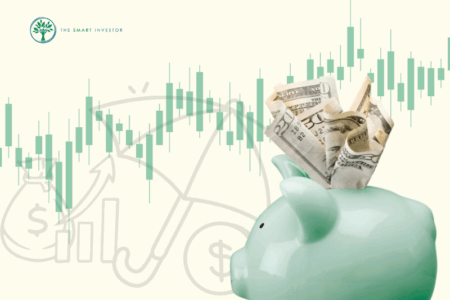Investors may be feeling vexed with Singapore banks at this moment.
Share prices of DBS Group Holdings Ltd (SGX: D05), United Overseas Bank Ltd (SGX: U11), or UOB, and Oversea-Chinese Banking Corp Limited (SGX: O39) or OCBC, have run up in the past few weeks to a three-month high.
Yet, at the same time, a second wave of COVID-19 infections is sprouting up all over the world, threatening to wreak havoc on already severely-weakened economies.
It’s not unusual to expect widespread job losses with businesses going belly up.
There seems to be a disconnect between the share price performance of the banks, and what’s happening in the real economy.
With all this negative news going around, does it still make sense to invest in Singapore banks?
A strong franchise
The local banks form the bedrock of Singapore’s economy. Each institution has a strong franchise and track record of growth over the years.
During times of financial stress, the banks have shown that they are resilient and have extensive experience in weathering storms.
Since the dire days of the Global Financial Crisis back in 2008-2009, the banks have built up sufficient capital reserves to withstand another storm.
Thus, we can safely say that the banks are better prepared now as compared to those dark days nearly 11 years ago.
Being well-capitalised and conservative is important as it allows the banks to not only survive the crisis but also to continue hiring staff and possibly even to make opportunistic acquisitions to bolster their franchise.
Recent news even suggests that DBS and OCBC are planning to add staff to their technology departments despite the economic downturn.
Steady loan growth
The banks all reported steady loan growth in their first quarter 2020 business updates.
DBS saw a 6.4% year on year increase in its loan book, while UOB and OCBC reported a 3% and 4.6% year on year growth in total loans, respectively.
Meanwhile, The World Bank estimates that more than 1 billion people in Asia remain “unbanked” (defined as having no access to financial services).
This fact offers significant growth opportunities for the local banks to grow their loan books over time and is a strong structural megatrend that can last for years.
However, loan growth may slow down or even turn negative in the near-term as the pandemic adversely impacts Asian economies, but this underlying megatrend should remain intact.
Consistent loan growth can even help to offset the effects of a low interest rate environment caused by global central banks lowering rates to combat the negative effects of the pandemic.
Steady, dependable dividends
The local banks are also known as consistent dividend payers.
DBS, for instance, has increased its annual dividend from S$0.58 in 2014 to S$1.23 by 2019.
For the first quarter of 2020, DBS declared a dividend of S$0.33, implying a full-year dividend of S$1.32.
Dividends are paid quarterly and at DBS’ closing price of S$20.70, the shares offer a trailing 12-month dividend yield of 6.4%.
UOB’s dividend has also increased steadily over the years, from S$0.75 in 2014 to S$1.30 last year.
The shares offer a trailing 12-month dividend yield of 6.4% too.
OCBC raised its annual dividend by 23% last year from S$0.43 to S$0.53. Its shares offer a 5.9% trailing 12-month dividend yield.
Investors need to be mindful of a possible reduction in dividends from all three banks in light of the economic downturn,
There are reasons to be confident, given the banks’ historical resilience, that dividends should be restored once the crisis has receded, and as the banks continue to grow over time, dividends may even be further raised in future years.
Get Smart: Short-term pain, long-term gain
There’s no avoiding it – Singapore banks may face a spike in bad loans arising from the COVID-19 pandemic.
Profit will fall as the banks increase their provisions for bad loans, and the non-performing loan ratio will surely go up.
Investors need to endure some short-term pain as this wave of financial stress hits our shore.
This pain is a necessary part of investing and should be tolerated to reap long-term financial rewards.
At the moment, banks offer an attractive entry point now as they are trading at high yields amid depressed sentiment.
With share prices battered to multi-year lows, many attractive investment opportunities have emerged. In a special FREE report, we show you 3 stocks that we think will be suitable for our portfolio. Simply click here to scoop up your FREE copy… before the next stock market rally.
Click here to like and follow us on Facebook and here for our Telegram group.
Disclaimer: Royston Yang owns shares in DBS Group Holdings Ltd.




